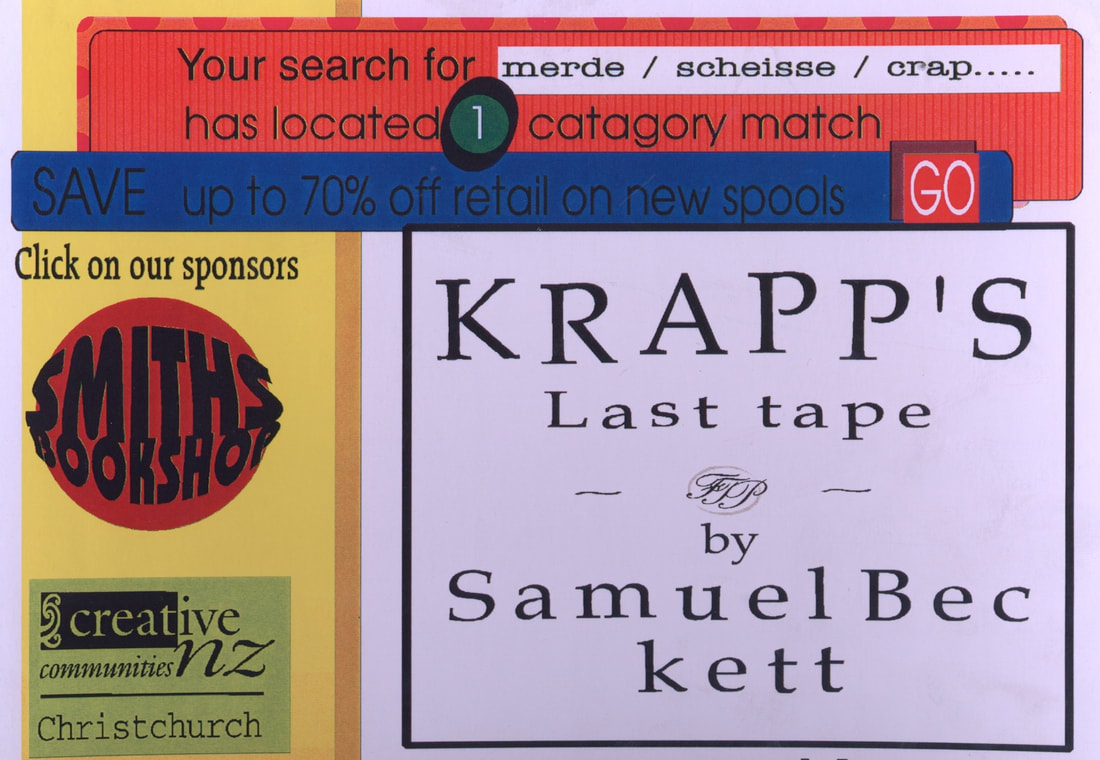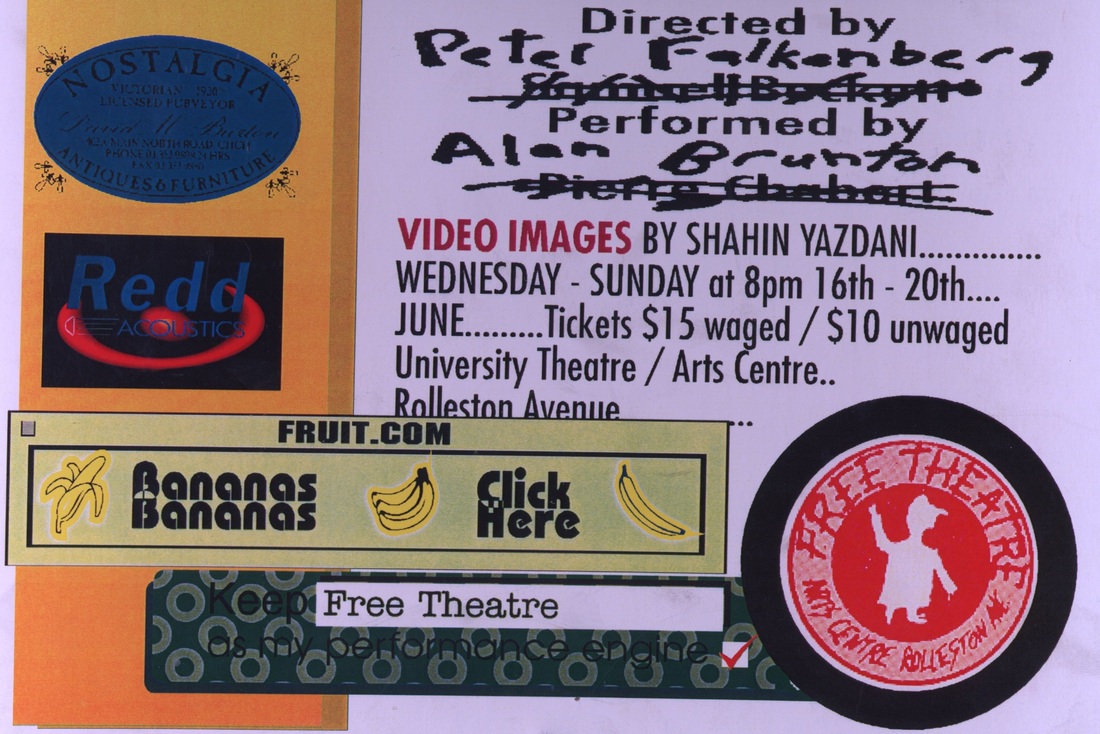KRAPP'S LAST TAPE
|
Publicity
Krapp's Last Tape
Free Theatre Press Release Brunton is 'perfect Krapp' By Anna Dunbar, The Press, 15 June 1999 Philosophy on stage The Mail 15 June 1999 Red Mole features in Beckett play Chronicle, June 1999 Former Red Mole is 1999 writer-in-residence Chronicle, June 1999
|
- HOME
- ABOUT
- UPCOMING
- EDUCATION
-
ARCHIVE
-
Productions 1979 - present
>
- Babylon Berlin
- Beggars Banquet
- Woyzeck
- The Tempest
- The Axe
- Endgame
- Digitising Performance
- Erewhon: Over the Range
- A Summer Night's Dream
- How Dare You
- A Winter's Tale
-
Ubu Nights
>
-
Past Ubu Nights
>
- Ma Ubu Night
- Ubu Through the Looking Glass
- Ubu in Wonderland Ubu Night
- Frankenstein Ubu Night
- Casablanca Ubu Night
- Faust Ubu Night
- Not Hamlet Ubu Night
- Punk Ubu Night
- The Art of the Deal Ubu Night
- Crossroads Ubu Night
- Ubu Shows Us the Way to Brecht's Whiskey Bar
- The Devil and the Blues Ubu Night
- Bowie Ubu Night
- Warhol Ubu Night
- Berlin Kabarette
- Beat Ubu Night
- Twin Peaks Ubu Night
- David Lynch Ubu Night
- Kafka Ubu Night
- Tango Ubu Night
- Ubu Ubu Night
- Lovecraft Ubu Night
-
Past Ubu Nights
>
- Ars Acustica
- Alice
- The Black Rider
- Frankenstein
- The Mauricio Kagel Project
- Te Puna Toi 2015: Footprints/Tapuwae
- Kafka's Amerika
- The Soldier's Tale
- Canterbury Tales
- I Sing the Body Electric
- Hereafter
- Passion, Pulse and Power
- The Earthquake in Chile
- Doctor Faustus
- The Marvellous Corricks >
- Distraction Camp
- Remake
- Ella and Susn
- Free Theatre - 25 years and counting...
- Faust Chroma
- Enigma Emmy Goering/Nico Sphinx of Ice
- Faust Feast
- Diana Down Under
- Philoctetes >
- Fantasia
- Christmas Shopping
- Grimm's Sleeping Beauty
- Achternbusch in the Antipodes
- Caucasian Chalk Circle
- Samson Airline
- Kabarett Kabul
- Footprints/Tapuwae
- Last Days of Mankind
- Medea
- Bakkhai / Diotek
- Krapp's Last Tape
- Murderer Hope of Women / The Philosopher's Stone
- Comrade Savage
- Love on a Bicycle
- Resolution Island
- Songs for the Judges
- Crusoe
- Oedipus Rex/Oedipus at Colonus
- States of Shock
- Empire Builders
- Yes
- Power
- Robinson Crusoe: Or I THat Was Born To Be My Own Destroyer
- Newsbites
- Dumped in Space
- MedeaMaterial
- Salome
- Electra
- Sphinx and Strawmen
- The Girl Who Sings Waterfalls
- Hamletmachine
- Oresteia
- A Respectable Wedding
- Bitter Tears of Petra von Kant
- Double Act and Postponeless
- Cloudkiwiland
- Preversions
- G.O.P. Helpomatic
- The Mortal Pleasure of Wander Lust
- Red Cross & Takeaway
- Lulu Earth Spirit
- The Meeting
- Action / Tongues
- Cowboy Mouth
- The Rise and Fall of the City of Mahagonny
- A Letter from L
- Dinosaurs and All the Rubbish / The Hunting of the Snark
- The Ride Across Lake Constance
- Electra
- In Three Minds
- The Rapist Over Suzannah
- 1984: The Future Is Now
- Leonce and Lena
- Kabernette
- The Joffongract
- My Foot, My Tutor
- King Lear
- King Ubu
- Jazz Cellar Dada / Heavy Metal Cabaret
- Kabarett
- Black Cat Cabaret
- The Gas Heart/Ox on the Roof/The Mirror Wardrobe One Fine Evening
- Round Dance
- Woyzeck
- Make-up Ground down / Texts for Decomposition
- Court Case: Arts Centre vs Free Theatre
- Image Gallery 1979 - present
- TV3 Clips
- Selected Reviews
-
Productions 1979 - present
>
- Te Puna Toi
- SUPPORT
- BLOG




